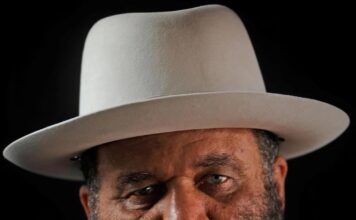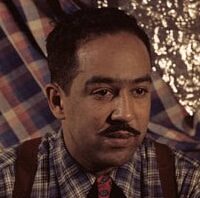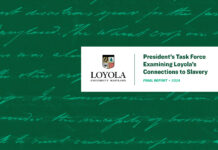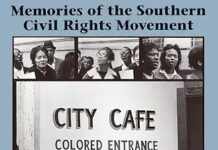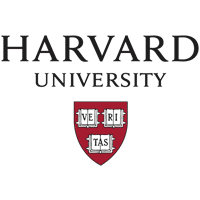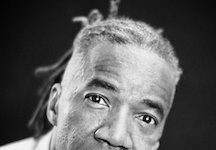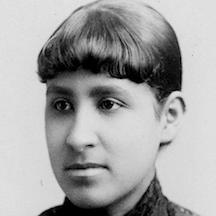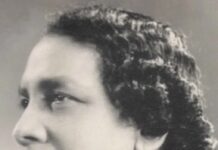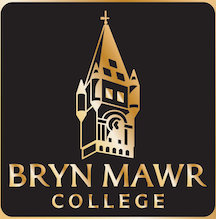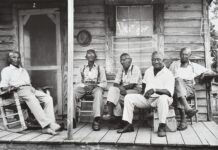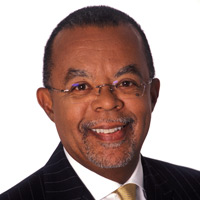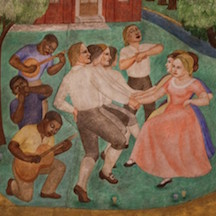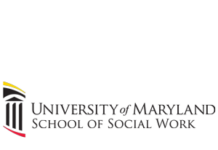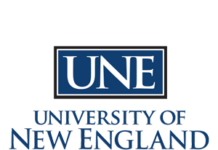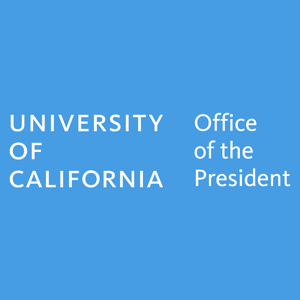Collection of Papers by Elijah E. Cummings Is Bequeathed to Morgan State University Library
The estate of Congressman Elijah E. Cummings has gifted Morgan State University with a large collection of Cummings' personal belongings. The collection will be showcased and studied by archivists at the university's library.
Loyola University of Maryland Publishes Report on Its Ties to Slavery
Over the past two decades, many of the nation's leading university's have issued reports on their historical ties to slavery. Now, Loyola University of Maryland in Baltimore has issued its findings.
New Online Database Exposes the Horrors of the Tuskegee Syphilis Study
The collection consists of more than 3,000 reproduced copies of correspondence, memoranda, meeting minutes, reports, and scientific articles regarding the 40-year U.S Public Health Service Study that withheld treatment from Black men with syphilis so researchers could track the progression of the disease.
Vanderbilt University Acquires the Dom Flemons Collection
The collection includes research materials on Black cowboys, musical instruments, an Edison phonograph with several playable wax cylinders, historical sheet music, art pieces, memorabilia, personal gifts, autographed records, and materials documenting Flemons’ 20-year professional music career.
Duke University Acquires Major Collection of Civil Rights Photographer Danny Lyon
The collection encompasses Lyon’s work with the Student Nonviolent Coordinating Committee and his continued documentation of the movement up to the present day. The collection includes nearly 8,500 individual images, most of which have never been published or seen outside of Lyon’s studio.
Harvard Announces a Grant Program to Address Systemic Inequities for Descendants of Slavery
The Harvard and the Legacy of Slavery Initiative will offer annual funding up to $350,000 for long-term projects and $25,000 for smaller projects that address systemic inequities for descendants of slavery.
Davidson College Decides to Keep the Name of an Enslaver on a Main Campus...
Davidson College in North Carolina has decided not to rename Chambers Building, the main academic structure on campus. The building is named for Maxwell Chambers who made a contribution to the college in 1855 that allowed the educational institution to continue operations. He also donated five enslaved people to the college.
Harvard University Establishes the Black Teacher Archive
The archive consists of journals and newsletters created by members of Colored Teachers Associations that captured the political and social efforts of Black educators’ activism from the Jim Crow era to the Civil Rights Movement. The old journals and bulletins chronicle the acts of resistance in places where Black educators fought against injustice in education under Jim Crow.
Black Students Who Integrated the Mississippi University for Women Honored
African American undergraduate students Diane Hardy, Barbara Turner and Laverne Greene, and graduate students Jacqueline Edwards, Mary Flowers and Eula Houser, stepped foot on the campus of Mississippi University for Women in 1966, facing all manner of ridicule to open the door for future generations of African American students.
University of South Carolina Celebrates the 150th Anniversary of the Enrollment of Its First...
Most people believe that the first Black students admitted to flagship state universities in the South occurred in the early 1960s. But this is not the case. Henry E. Hayne, the son of an enslaved woman and a White planter, enrolled at the University of South Carolina in 1873.
Berkeley Professor to Design Emory University’s Memorial to the Enslaved
In 2021, Emory University announced plans to develop memorials on its Atlanta and Oxford campuses to honor the enslaved individuals who are part of Emory’s history. The university has selected the Hood Design Studio of Oakland, California to develop plans for the memorials.
Howard University Completing Work on the Renovation of the Home of Mary Church Terrell
Mary Church Terrell's home at 326 T Street NW in Washington, D.C. was built in 1894. She and her husband Robert Heberton Terrell, an educator and law professor at Howard University occupied the home between 1899 and 1913. In accordance with Terrell's wishes, the home was bestowed to Howard University in 1987. With the help of a federal grant, the home is now being restored.
Morgan State University Museum Added to the National Register of Historic Places
In 1935, Lillie Jackson was elected president of the Baltimore Branch of the NAACP. Under her leadership, the NAACP membership rose from less than 200 in 1935 to over 25,000 by 1946. She remained president until 1970. Her home was made into a museum and later ownership was transferred to Morgan State University,
Americans Overwhelmingly Support Teaching the Current Impacts of Racism in Public Schools
Recent data from the Gallup Center on Black Voices indicate that more than three in four Americans support curricula that teach students about the current impacts of racism.
Six HBCUs Receive Funding for Historic Preservation of Campus Buildings
Six historically Black colleges and universities are receiving grants from the African American Cultural Heritage Action Fund of the National Trust for Historial Preservation to preserve historic buildings on campus.
Study Seeks to Fill in the Gaps in African American Ancestral History
The 1870 federal census recorded formerly enslaved African Americans by name, and though it is a vital tool for genealogical research, many African Americans are still not able to trace their family members to or beyond this document. A new study attempts to shed some light on the ancestral history of African Americans prior to 1870.
Huge Number of the Nation’s Political Leaders Have Director Ancestors Who Enslaved People
New research by Reuters has found that of the 536 members of the current U.S. Congress, at least 100 have ancestors who had ties to the institution of slavery. More than one quarter of all U.S. Senators have an ancestor who enslaved at least one person. Two justices of the U.S. Supreme Court and 11 of the nation's 50 governors had ancestors who were involved in slavery.
Huge Number of the Nation’s Political Leaders Have Direct Ancestors Who Enslaved People
New research by Reuters has found that of the 536 members of the current U.S. Congress, at least 100 have ancestors who had ties to the institution of slavery. More than one quarter of all U.S. Senators have an ancestor who enslaved at least one person. Two justices of the U.S. Supreme Court and 11 of the nation's 50 governors had ancestors who were involved in slavery.
Eleven Colleges and Universities Receive Grants Relating to Blacks From the National Archives
Recently the National Archives announced 47 grants totaling $6,510,701 for projects in 27 states and the District of Columbia to improve public access to historical records. Many of these grants relate to African Americans.
New Africana Studies Fellowship Created at Georgia State University
The department of Africana studies at Georgia State University has announced the establishment of the Jacqueline Rouse-Doris Derby Africana Studies Fellowship program. The program honors two women who played a significant role in the development of the Africana studies program at the university.
Johns Hopkins University Obtains an Archive of Materials on the Early Life of Billy...
The new collection includes the earliest known photo of Billie Holiday—a posed studio shot taken in 1917 when she was 2 years old — ephemera such as programs from clubs, hand-written set lists, and a grocery shopping list. The collection also includes 140 taped interviews with friends and colleagues of Holiday.
Yale University Awards Degrees to Two of its First Students
James W. C. Pennington (1808-1870) and Alexander Crummell (1819-1898) studied at Yale from 1834 to 1837 and 1840 to 1841, respectively. Because they were Black, however, the university did not allow them to register formally for classes or matriculate for a degree. They could not participate in classroom discussions or access library resources.
The University of South Carolina’s First Building Named to Honor an African American
The University of South Carolina has renamed a residence hall to honor Celia Dial Saxon, who was born enslaved in 1857 but later had a 57-year career as an educator in South Carolina. Saxon attended the Normal School on the University of South Carolina campus when it was integrated during Reconstruction.
Bryn Mawr College Removes the Name of Its Racist Former President From Its Library...
Martha Carey Thomas was the second president of Bryn Mawr College in Pennsylvania. She was a graduate of Cornell University and earned a Ph.D....
University of North Carolina at Chapel Hill Acquires Massive Photographic Archival of Black History
The Roland L. Freeman Collection is a massive compilation of assignment and project work from a career that spans more than 50 years of documenting Black communities, public figures, and folk art and artisans. It consists of nearly 24,000 slides, 10,000 photographic prints, 400,000 negatives, and 9,000 contact sheets.
Scholars Enhance FBI Photographs From Bloody Sunday
Photographs taken by FBI photographers from the ground and in surveillance aircraft were declassified in 2015, but have never been enlarged and enhanced via hi-resolution scans until now. A major question is why these photographs remained classified for 50 years.
A Photograph Is Discovered of the First Black Graduate of Yale College
For many years, it was believed that Edward Bouchet was the first Black graduate of Yale College in 1874. But nine years ago, new research discovered that Richard Henry Greene of the Class of 1857 was the first Black graduate. Now a photograph of Dr. Greene has been discovered.
Rice University to Relocate Statue of Its White Supremacist Founder
The board of trustees of Rice University has decided the statue of William Marsh Rice will no longer be at the center of the Academic Quadrangle and will be presented with historical context and information about the university’s founder, including his ownership of enslaved people.
Pomona College Receives the Personal Archives of Myrlie Evers-Williams
The collection, containing thousands of items focuses on her life after moving to California in 1964 after the assassination of her husband Medgar Evers. The Mississippi state archives are home to the Medgar Wiley and Myrlie Beasley Evers Papers, covering their early years in that state.
Columbia University to Acquire the Archives of Composer and Educator Tania León
The Rare Book & Manuscript Library at Columbia University in New York has announced that it will acquire the archives of Tania León, the noted composer, conductor, and educator. Her orchestral work Stride, commissioned by the New York Philharmonic in celebration of the centennial of the Nineteenth Amendment, was awarded the 2021 Pulitzer Prize in Music.
College of William and Mary to Digitize Records of Early African American Churches
The Special Collections Research Center of the College of William and Mary in Williamsburg, Virginia, has partnered with several Black churches in Williamsburg to add their church records to the library’s special collections. One is the First Baptist Church, one of the country’s earliest African-American congregations that was founded by free and enslaved African Americans in 1776.
East Tennessee State University Has Digitized a Collection of Black History in Appalachia
The Langston Heritage Group Collection includes a wealth of historical information about Black churches, schools, civic clubs, and organizations throughout Washington County, Tennessee from the end of the Civil War to the present. It was donated to the university in 2000 but has now been digitized and made available to researchers and the public.
The University Consortium on Afro-Latin American Studies Will Examine Western Hemisphere Slavery
Of the 10.7 million Africans who survived the Middle Passage, 4.9 million were taken to Brazil, another 1 million arrived in Jamaica, and millions more were taken to various islands in the Caribbean. A new collaboration between Harvard University, the University of Pittsburgh and four universities in Latin America will study slavery throughout the Western Hemisphere.
Four African Americans Receive Significant Honors From Louisiana State University
The School of Education and the Graduate School will be renamed to honor African Americans students who broke racial barriers at the university. The Design Building is being renamed for the university's first Black professor.
University of Kentucky Has Allocated Funds to Remove Controversial Mural From Memorial Hall
During the Great Depression, Ann Rice O’Hanlon painted a 38 feet wide, 11 feet tall mural on Kentucky history in the University of Kentucky’s Memorial Hall. The mural depicted enslaved African Americans hunched in a field, Black musicians playing for White dancers, and a Native American threatening a White settler with a tomahawk.
Brown University Honors Its First Black Woman Doctoral Recipient
Brown University in Providence, Rhode Island, is renaming its Graduate School diversity fellow in honor of the first Black woman to earn a Ph.D. from the university. The Mae Belle Williamson Simmons Diversity Fellowships will honor the legacy of a trailblazing Providence native who earned a Ph.D. in 1962 and made a lasting impact on the field of child psychology.
